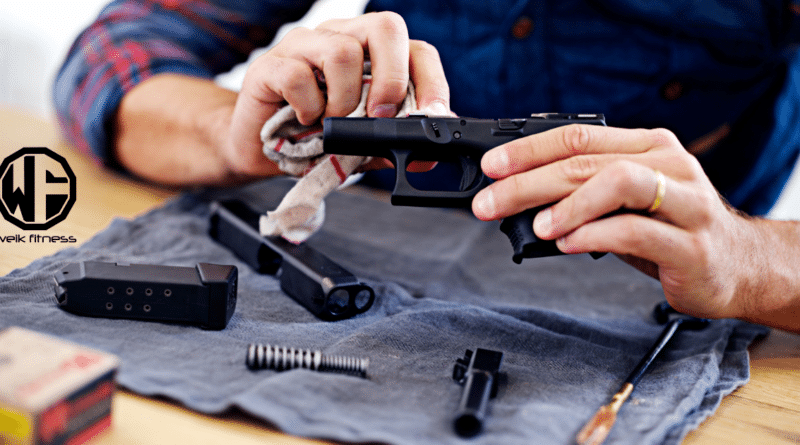Gun Lube vs. Gun Oil: What’s the Difference?
Many gun owners find gun lube and gun oil confusing. I’ve researched this topic extensively to clarify the differences. This guide will help you select the appropriate product for your firearm, depending on your wants and needs.
I’ll explain gun lube and gun oil to help you understand their uses.
I hope this information simplifies your gun care routine and helps maintain your firearms in excellent condition. Let’s dive into it!
Table of contents
Key Takeaways
- Gun lube is thicker and sticks better to surfaces, while gun oil is thinner and flows into tight spaces.
- Gun lube works well from -85°F to 1250°F, but gun oil may thicken in extreme cold.
- Gun lube repels dust and dirt, but gun oil can attract them.
- Both gun lube and oil protect against rust and reduce friction between moving parts.
- Choose gun lube for long-term storage and gun oil for regular use and cleaning.
What is Gun Lube?
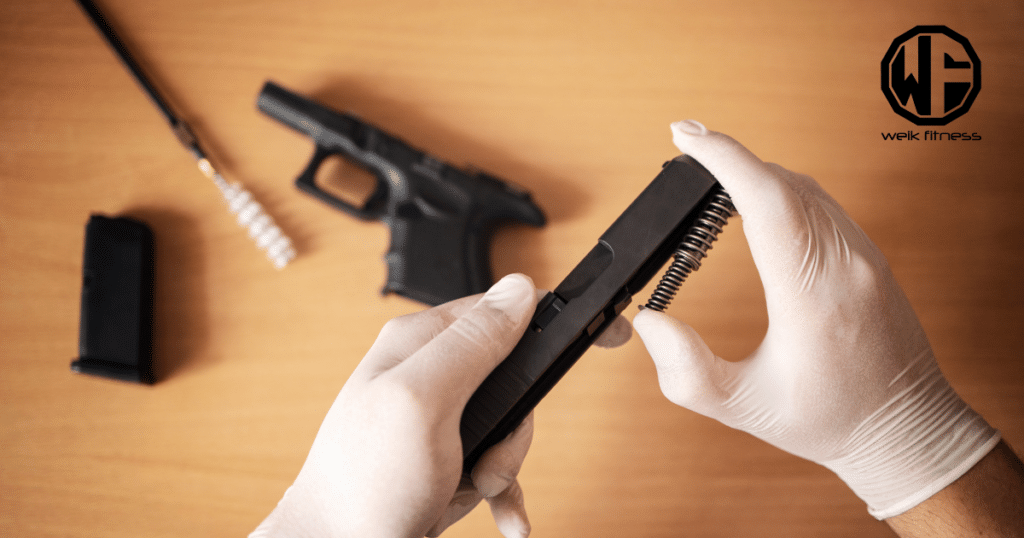
Gun lube is a special product for firearms. It helps keep guns working well and stops rust.
Primary uses of gun lube
I use gun lube to keep my firearms running smoothly. It’s great for moving parts like slides, bolts, and triggers. I apply a thin layer to reduce friction between metal components.
This helps my gun work better and last longer.
Gun lube also protects against rust, wear and corrosion. I wipe it on exposed metal surfaces after cleaning. It forms a barrier against moisture and air. This keeps my firearms safe during long term storage in a gun safe or in humid conditions.
With proper lubrication, I ensure my guns stay in top shape for years.
Features of gun lube
Gun lube is a vital tool for firearm maintenance. It keeps guns running smoothly and protects them from wear and tear.
- Slip 2000 Gun Lube works in extreme temps from -85°F to 1250°F
- It’s non-toxic and safe for the environment
- The lube doesn’t attract dirt or dust like oil-based products
- It meets tough military specs for quality
- Gun lube forms a protective layer on metal parts
- It reduces friction between moving gun parts
- The lube helps prevent rust and provides superior corrosion protection
- It cleans as it lubricates, removing carbon buildup
- Gun lube is easy to apply with a dropper or spray
- It lasts longer than regular oil, needing less reapplication
- The lube works well for long-term gun storage
- It’s safe to use on all types of firearms
- Gun lube helps guns fire more reliably
- It can improve accuracy by reducing barrel friction
What is Gun Oil?
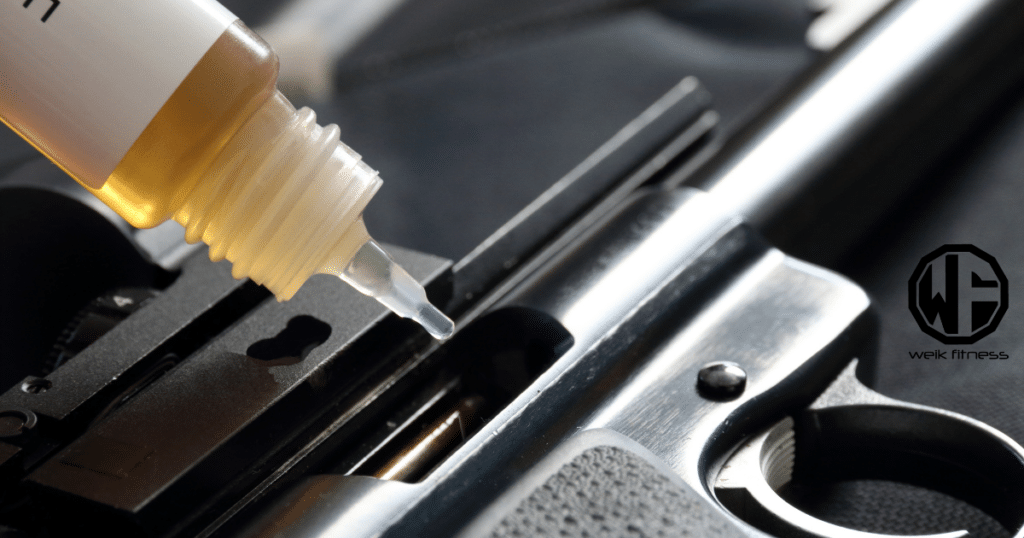
Gun oil keeps your firearm smooth and rust-free. It’s a thin liquid that coats metal parts to stop wear and tear.
Primary uses of gun oil
I use gun oil to keep my firearms up and running. It’s great for reducing friction between moving parts. This helps my guns work better and last longer. Gun oil also protects against rust and corrosion.
I apply it after cleaning to create a barrier on metal surfaces.
Gun oil has high lubricity, which helps control carbon buildup. This prevents fouling and keeps my guns running smoothly. It works well in different temperatures, too. The oil’s high viscosity index ensures it stays effective whether it’s hot or cold outside.
For easy maintenance, I often choose CLP solutions that combines a gun cleaner and lubrication in one product. Gun Butter is another great brand that I would recommend.
Features of gun oil
Gun oil is a vital tool for firearm maintenance. It keeps guns working smoothly and protects them from wear.
- Gun oil resists rust and corrosion, extending the life of firearms
- It has a high viscosity index, allowing it to work well in hot and cold temps
- Advanced formulas like Super Nano CLP use cutting-edge tech
- Only a small amount is needed on moving parts to be effective
- Excess oil should be wiped off to prevent dirt buildup
- A thin coat in the bore helps protect guns during long-term storage
- It’s refined from petroleum for optimal performance
- Quality gun oils work on all types of firearms — pistols, rifles, and shotguns
- Many gun oils also clean and protect in addition to lubricating
- Some formulas are odorless and non-toxic for safer use
Key Differences Between Gun Lube and Gun Oil
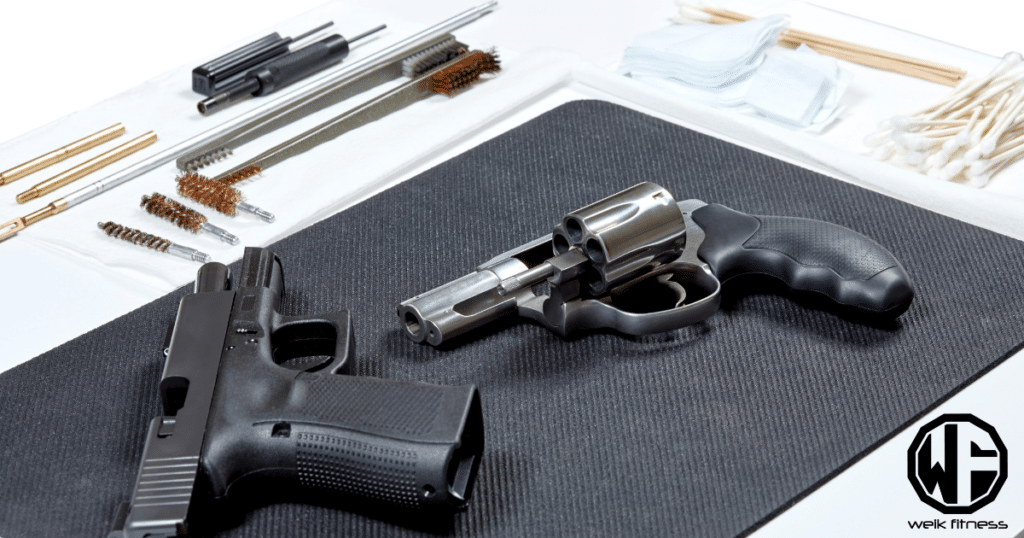
Gun lube and gun oil have key differences. They vary in thickness, how you put them on, and how well they work in different settings.
Composition and viscosity
Gun lubes and oils differ in their makeup and thickness. I’ve created a table to show you the key differences:
| Aspect | Gun Lube | Gun Oil |
|---|---|---|
| Base | Synthetic firearm lubricants | Petroleum distillates |
| Viscosity | Higher (e.g., Slip 2000: 2167 cSt at -40°C) | Lower (e.g., 10W-30 or 10W-40) |
| Additives | No Teflon or silicone | May contain Teflon or silicone |
| Consistency | Thicker, gel-like | Thinner, more fluid |
The thicker consistency of gun lube helps it stick to surfaces better. Gun oil flows more easily into tight spaces. Your choice depends on your gun’s needs and use conditions.
Application methods
I apply gun lube and oil differently. Here’s a quick breakdown of how to use each:
| Gun Lube | Gun Oil |
|---|---|
| – Apply thin coat – Use on moving parts – Rub in with cloth – Reapply after 500-1000 rounds | – Drop onto parts – Spread with finger – Wipe off excess – Use on all metal surfaces |
Slip 2000 works best with a thin coat. I put a small amount on a cloth and rub it into the metal. For oil, I drop it right onto the parts. Then I spread it around with my finger. I always wipe off any extra oil to avoid attracting dirt.
Performance in various conditions
Performance in various conditions can make or break your firearm’s reliability. Let’s look at how gun lubes and oils fare in different environments.
| Condition | Gun Lube Performance | Gun Oil Performance |
|---|---|---|
| Hot & Humid | Stays put, resists evaporation | May thin out, needs reapplication |
| Cold | Remains fluid, doesn’t thicken | Can thicken, reducing effectiveness |
| Dusty | Repels dust, stays clean longer | Attracts dust, needs frequent cleaning |
| Extreme Temps | Works from -85°F to 1250°F | Limited temperature range |
Slip 2000 stands out in tough spots. It works great in hot, humid, dusty, or cold places. The U.S. Army tested it for dusty areas like Iraq. It’s good for all kinds of guns, from pistols to rifles.
Pros and Cons of Gun Lube
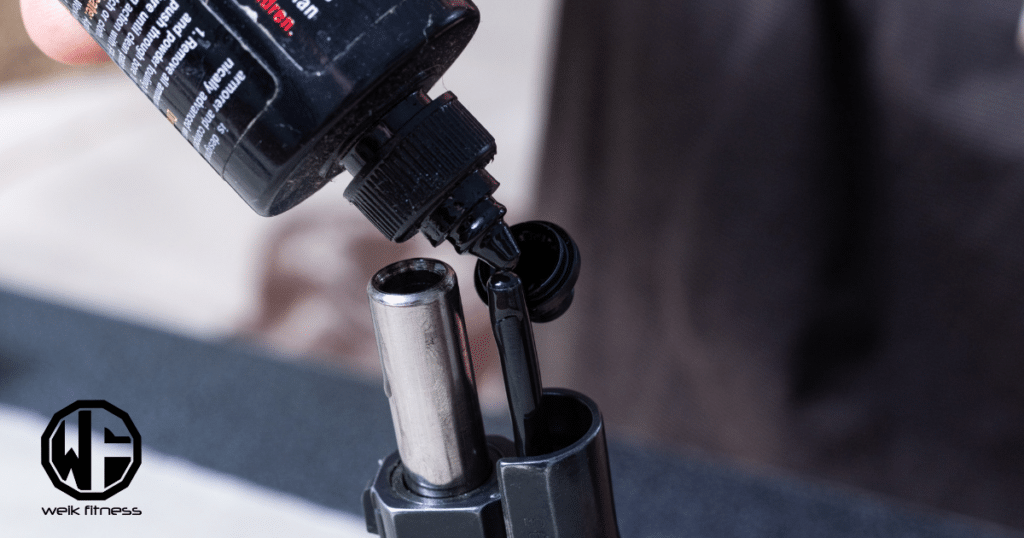
Gun lube offers both good and bad points. It’s key to know these before you choose.
Advantages of gun lube
Gun lube offers many benefits for firearm owners. I’ve found gun lubricant to be a key part of gun care. Here are the main advantages:
- Reduces friction between moving parts
- Prevents rust and corrosion on metal surfaces
- Enhances gun reliability during use
- Extends the life of firearms
- Makes firearm cleaning easier after shooting
- Safe to use — non-toxic and biodegradable
- Improves gun performance in various conditions
- Protects against moisture and dirt
- Stays in place better than oil on vertical surfaces
- Works well in both hot and cold temperatures
Disadvantages of gun lube
Gun lube has some drawbacks that gun owners should know. I’ll share the main disadvantages of using gun lube:
- It attracts dust and dirt. Gun lubrication can act like a magnet for tiny particles.
- It can stain clothes. The oily nature of gun lube may leave marks on fabric.
- Some gun lubes cake up over time. This caking can interfere with gun parts moving smoothly.
- It may soil your hands during use. The sticky texture can be hard to wash off.
- Certain gun lubes have unresolved issues. These problems can affect gun performance.
- It needs frequent reapplication. Gun lube can wear off quickly with use.
- Some types may not work well in extreme cold. The lube can thicken and slow down gun parts.
- It can be messy to apply. Precise application can be tricky without the right tools.
Pros and Cons of Gun Oil
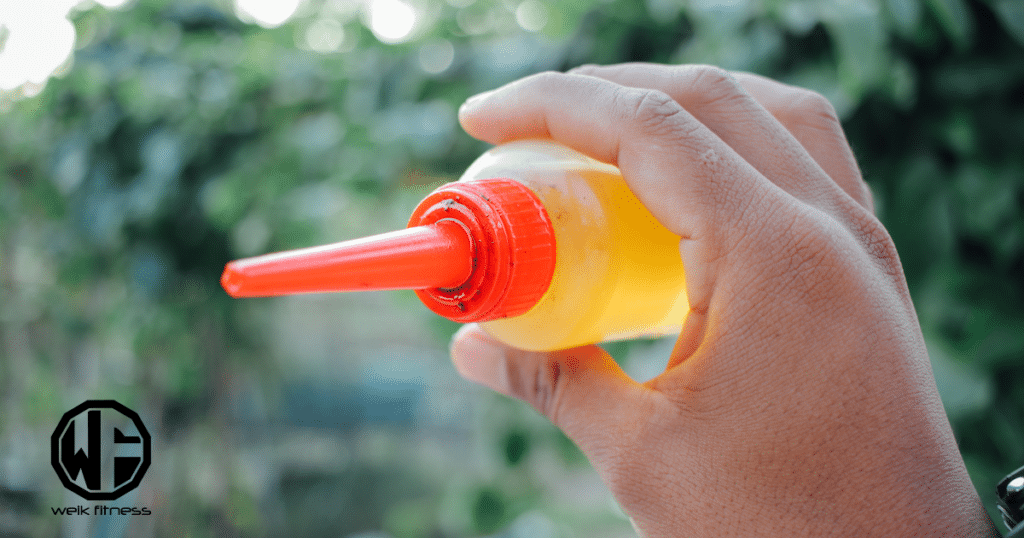
Gun oil shines in its ability to protect against rust and wear. It’s easy to apply and works well in extreme temps, but it can attract dirt and grime.
Advantages of gun oil
Gun oil like Hoppe’s and Breakthrough offers several benefits for firearm maintenance. I’ve found it to be a key tool in my gun care routine. Here are the advantages of gun lubricating oil:
- Prevents rust and corrosion protection on metal parts
- Reduces friction between moving parts
- Helps guns operate smoothly
- Makes cleaning your firearms easier by loosening dirt and grime
- Protects against moisture damage
- Extends the life of firearms
- Works well in extreme temperatures
- Penetrates deep into small crevices
- Displaces water from gun surfaces
- Leaves a protective film on metal
- Doesn’t gum up or become sticky
- Safe for use on wood and plastic parts
- Often comes with easy-to-use applicators
- Helps maintain accuracy by keeping parts aligned
- Reduces wear on high-stress areas
Disadvantages of gun oil
Gun oil has some drawbacks for firearm care. I’ll share the key issues to watch out for when using this product.
- Attracts dirt and dust easily
- Can gum up in cold weather
- Needs frequent reapplication
- May cause slippery handling
- Can seep into unwanted areas
- Might stain clothing or gear
- Tends to evaporate quickly in heat
- Leaves oily residue on surfaces
- Can interfere with some gun finishes
- Harder to apply in tight spaces
How to Choose Between Gun Lube and Gun Oil for Rifles and Pistols
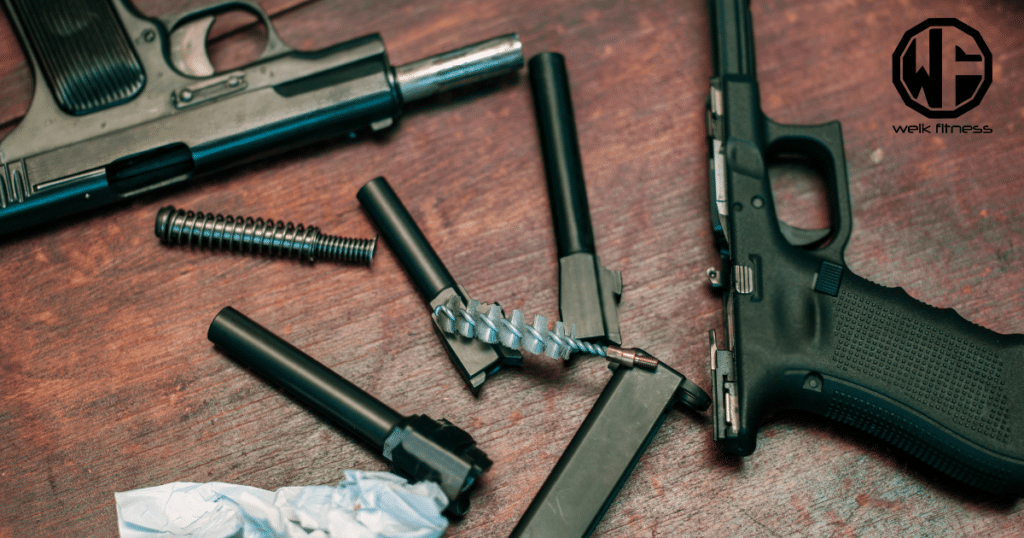
I pick gun lube or oil based on my needs. For moving parts, I use synthetic gun oil. It flows well and protects against wear. For long-term storage, I prefer gun grease. It stays put and fights rust better.
I always go for all-synthetic products over petroleum-based ones. They work in more conditions and last longer. I think about where I’ll use my gun, too. Oil is great for warm weather, but grease holds up better in extreme cold.
I make sure to get a product that can handle my specific gun type and how I use it.
Both Gun Lube and Gun Oil Have their Place in the Market Today
Gun lube and gun oil each have their place in firearm care. Lube works best for moving parts, while oil shines for rust prevention. Your choice depends on your gun’s needs and how you use it.
Pick the right product to keep your firearm in top shape. With proper care, your gun will serve you well for years to come.
RELATED: Concealed Carry Comfort — How to Select the Best Gun Belt
As a side note to close out this article, if you want to support our website and are in need of any tactical gear (or any product for that matter), anything you purchase using our links below will provide us with a small commission. We don’t charge for our free content and our goal is to keep it that way. We don’t have a Patreon account to put things behind a paywall, nor do we sell pics of our feet on OnlyFans.
If you choose to use the links below and make a purchase (at no additional cost to you), we greatly appreciate your support as it helps us continue to publish free content (like this article) on our website:
- Optics Planet (use code SAS5 at checkout for 5% off)
- Amazon
We have also partnered with CCW Safe. It’s the concealed carry coverage that I personally have for myself and my family in the event we need to defend our lives. Feel free to use our CCW Safe link to sign up and get some coverage to protect yourself and your family.
Also if you have a product you would like us to check out and potentially review, please contact us and let’s discuss.


